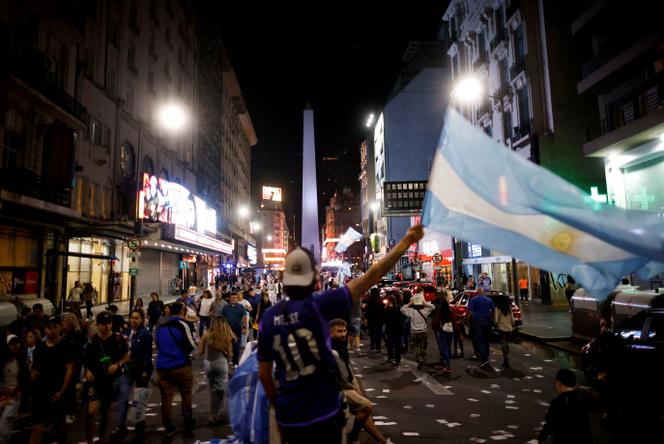


He didn't sleep a wink after his victory in Argentina's presidential election, with 55.7% of the vote. His voice still hoarse, the far-right libertarian Javier Milei gave a series of interviews to the country's main radio stations on the morning of Monday, November 20, to clarify some of his measures and, in some cases, their timetable.
Everyone was hoping that he would unveil the name of his economy minister, a crucial position in view of his policy platform. To no avail. Milei, secluded in his HQ at a downtown hotel, met with close friends and allies, including former president Mauricio Macri (center-right, 2015-2019). His expected meeting with the outgoing president, Alberto Fernandez, had still not taken place by Monday evening.
Monday was a public holiday in Argentina, and the banks were closed. The city seemed to be in a state of torpor after the previous day's turmoil. Abroad, financial markets reacted with jubilation to the announcement of Milei's election. The shares of certain Argentine companies on Wall Street jumped by 40%.
The economic situation is dire. In 10 years, no fewer than nine economy ministers and six central bank presidents have attempted to tackle it. Elected on the promise of putting an end to inflation (143% over one year), Milei claims that it would take between a year and a half and two years to "destroy" it. His two main levers for achieving this are zealous fiscal discipline and replacing the national currency, the peso, with the dollar.
Guido Zack, director of the economics section of the think-tank Fundar, considers the measure "unworkable, given that dollar reserves are currently negative." To "dollarize" the economy, said Zack, Argentina would need to obtain a loan of at least $40 billion, even though it already owes more than that sum to the International Monetary Fund.
Milei is seeking not only the abolition of the national currency, but also, consequently, of the central bank, whose monetary policy he has blamed for the country's inflation. Closing it down is a "moral imperative," he has said. But such a move is a "wacky idea," said Zack: "The only country to have done so is Micronesia. The other countries to have 'dollarized,' such as El Salvador and Ecuador, have kept their central banks, not to mention the European countries that have adopted the euro."
Milei also confirmed his intention to "privatize everything that can be privatized." The president-elect has announced that he will sell the state-owned media – radio, press agency and television – which "have become a propaganda mechanism," in his words. He meticulously chooses what news organizations he grants interviews to: only those that are indulgent with him.
You have 55% of this article left to read. The rest is for subscribers only.
